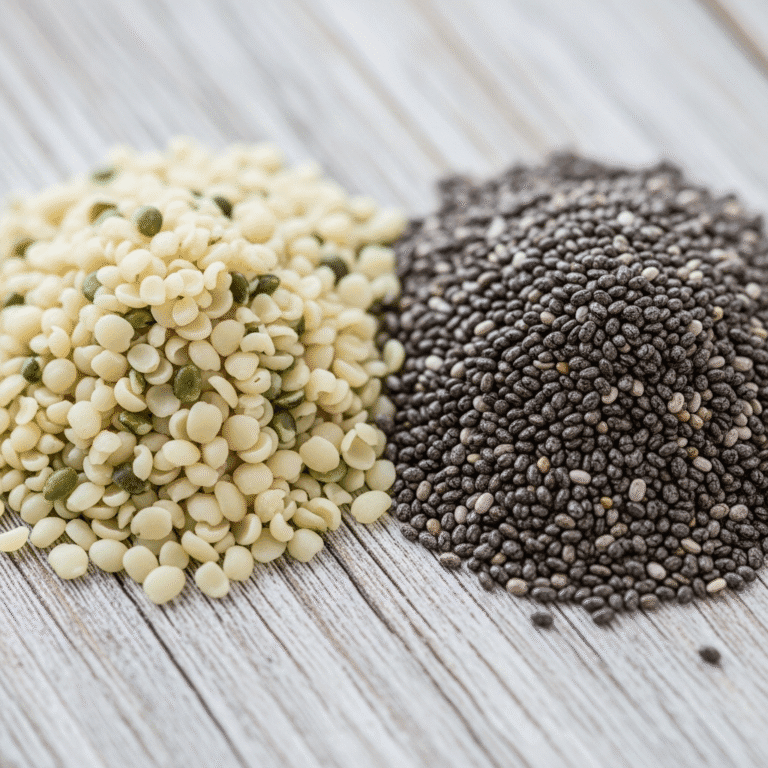FREE SHIPPING OVER $50
Is Psyllium Husk the Safer and More Affordable Ozempic Alternative No One Talks About?
The buzz around weight loss medications like Ozempic has been undeniable. People are seeing significant results, and for some, it’s been a game-changer. However, these medications often come with a hefty price tag and potential side effects, making them inaccessible or undesirable for many. This naturally leads us to wonder: are there more natural, accessible, and budget-friendly options out there that can still aid in weight management?
Enter psyllium husk. You might have seen it lurking in the fiber supplement aisle, but could this humble plant-based product actually hold some secrets to weight loss, perhaps even offering a gentler and more affordable route compared to prescription drugs? Let’s explore this intriguing possibility.

Understanding Ozempic and Its Role in Weight Loss
Ozempic, a brand name for semaglutide, is a medication primarily prescribed for type 2 diabetes. However, it has gained significant attention for its effectiveness in promoting weight loss. It works by mimicking a natural hormone called GLP-1, which helps regulate blood sugar, slow down digestion, and increase feelings of fullness. As a result, people taking Ozempic often experience reduced appetite and, consequently, weight loss.
While undeniably effective for many, Ozempic isn’t without its drawbacks. These can include nausea, vomiting, diarrhea, constipation, and abdominal pain. Furthermore, it requires a prescription, regular injections, and can be quite expensive, making it a less viable option for a large portion of the population seeking to manage their weight.
Psyllium Husk: Nature’s Gentle Giant for Weight Management
Now, let’s turn our attention to psyllium husk. Derived from the seeds of the Plantago ovata plant, psyllium husk is a soluble fiber. This means it absorbs water in the gut, forming a gel-like substance. This seemingly simple action has several profound effects that can contribute to weight management.
How Psyllium Husk May Aid Weight Loss: The Mechanisms at Play
While psyllium husk doesn’t directly mimic the hormonal actions of Ozempic, its unique properties can indirectly support weight loss through various mechanisms:
- Promoting Satiety and Reducing Appetite: When psyllium husk absorbs water and expands in your stomach, it creates a feeling of fullness. This can help you feel satisfied with smaller portions of food and reduce overall calorie intake throughout the day.
- Slowing Down Digestion and Nutrient Absorption: The gel-like consistency of psyllium husk can slow down the rate at which food moves through your digestive system. This can lead to a more gradual release of glucose into the bloodstream, helping to stabilize blood sugar levels and prevent those energy crashes that can trigger cravings for unhealthy snacks.
- Supporting Gut Health: Psyllium husk is a prebiotic, meaning it feeds the beneficial bacteria in your gut. A healthy gut microbiome is increasingly being linked to various aspects of health, including metabolism and weight management. By nurturing these good bacteria, psyllium husk contributes to a balanced internal environment.
- Potentially Lowering Cholesterol Levels: Some studies suggest that psyllium husk can help lower LDL (“bad”) cholesterol levels. While not a direct weight loss mechanism, maintaining healthy cholesterol levels is crucial for overall cardiovascular health, which is important when making lifestyle changes for weight management.
Psyllium Husk vs. Ozempic: A Comparative Look
Let’s directly address the question of whether psyllium husk is a safer and more affordable Ozempic alternative:
- Safety Profile: Psyllium husk is generally considered safe for most people when taken with adequate water. Common side effects are usually mild and may include gas and bloating, especially when first starting or taking too much. Ozempic, as mentioned earlier, can have more significant side effects.
- Affordability and Accessibility: Psyllium husk is readily available over the counter at most pharmacies and health food stores. It is also significantly more affordable than prescription medications like Ozempic, making it a much more accessible option for a wider range of people.
- Mechanism of Action: It’s crucial to understand that psyllium husk and Ozempic work through very different mechanisms. Ozempic directly impacts hormones related to appetite and blood sugar, leading to potentially more rapid and significant weight loss in some individuals. Psyllium husk, on the other hand, supports weight management through its effects on digestion, satiety, and gut health. The weight loss with psyllium husk might be more gradual and dependent on incorporating it into a healthy lifestyle.
- Efficacy for Weight Loss: While Ozempic has demonstrated significant weight loss in clinical trials, psyllium husk’s impact on weight loss is more subtle and often observed as part of a broader healthy diet and exercise plan. It may not lead to the dramatic weight loss seen with Ozempic, but it can be a valuable tool for supporting gradual and sustainable weight management.
Integrating Psyllium Husk into Your Weight Loss Journey
If you’re considering incorporating psyllium husk into your weight loss strategy, here are some practical tips:
- Start Slowly: Begin with a small dose (around ½ to 1 teaspoon) once a day and gradually increase to the recommended dosage (usually 1-2 teaspoons one to three times daily). This helps your body adjust and minimizes potential digestive discomfort.
- Mix with Plenty of Water: Always mix psyllium husk with at least 8 ounces (240 ml) of water or another liquid and drink it immediately. This prevents it from swelling in your throat, which could be a choking hazard.
- Take it Before Meals: Consuming psyllium husk about 30 minutes before a meal can help you feel fuller and eat less.
- Listen to Your Body: Pay attention to how your body responds and adjust the dosage accordingly. If you experience significant discomfort, reduce the amount you’re taking.
- Combine with a Healthy Lifestyle: Psyllium husk is most effective when combined with a balanced diet rich in whole foods and regular physical activity. It’s not a magic bullet but a supportive tool.
- Choose the Right Form: Psyllium husk comes in various forms, including powder and capsules. Choose the one that you find most convenient to use. Plain, unsweetened varieties are generally the best option to avoid added sugars or artificial ingredients.
Important Considerations and Potential Downsides of Psyllium Husk
While generally safe, there are a few things to keep in mind when using psyllium husk:
- Drug Interactions: Psyllium husk can interfere with the absorption of certain medications. It’s essential to talk to your doctor if you are taking any prescription drugs, especially those for heart conditions or diabetes, to ensure there are no potential interactions. It’s generally recommended to take psyllium husk a few hours before or after taking other medications.
- Digestive Discomfort: As mentioned earlier, some people may experience gas, bloating, or stomach cramps, especially when first starting to use psyllium husk or if they consume too much. Starting slowly and ensuring adequate water intake can help minimize these issues.
- Allergic Reactions: Although rare, some individuals may be allergic to psyllium. If you experience any signs of an allergic reaction, such as hives, itching, or difficulty breathing, discontinue use immediately and seek medical attention.
Conclusion
So, is psyllium husk the safer and more affordable Ozempic alternative that no one talks about? The answer is nuanced. It’s not a direct replacement in terms of its physiological action and the potential magnitude of weight loss. Ozempic works through powerful hormonal mechanisms, while psyllium husk primarily aids weight management through its physical properties in the digestive system.
However, psyllium husk offers a compelling package of benefits: it’s generally safe, widely accessible, significantly more affordable, and can contribute to weight management by promoting satiety, supporting gut health, and aiding in blood sugar control.
Related Articles
- The Metabolism ‘Sweet Spot’: Walk This Many Steps Daily to Burn Fat While You Sleep
- Stop Wasting Time: 15 Diet Secrets That Burn Belly Fat 3x Faster in 30 Days
- I Lost 50 Pounds Without Counting a Single Calorie—Here’s Exactly What I Did
- I Tried 4:3 Intermittent Fasting—Here’s Why It Beat Calorie Cutting by a Mile
- Menopause Weight Gain? This 5-Move Routine Shrinks Belly Fat and Builds Muscle (Backed by Science)







